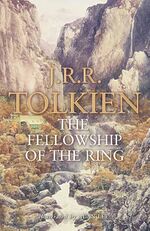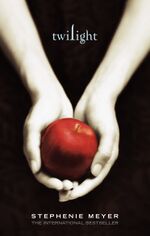Death of The Author
Death Of The Author is an essay written originally by Literary Critic, professional mime, Philosopher and frenchman Roland Barthes. In it Barthes stated his view that creating texts is detrimental to health, as every author has, at some point in history, died.
Production
In his autobiography "The Life of Roland Barthes, Great Literary Critic, Philosopher and Lover", Barthes writes that the idea for this text came to his mind while he was reading Twilight, and wishing a horrible death on Stephanie Meyer. He describes this moment as "one of those moments that made me feel as the unique great philosophiser of language things that I am."
He refined his theory while reading The Da Vinci Code, when he was only able to reclaim the will to live by realising that Dan Brown would eventually cease to do so. He observed: "while this theory does seem to carry grave implications for authors such as myself, it does at least make the reading of singularly poor fiction slightly more bearable". Of course, he could just have chosen his holiday reading with more care, but we should be pretty glad he didn't, as it may have deprived us of this important theory had he read a good book instead of always choosing the latest airport blockbuster at the last minute.
Criticism
When Barthes finally published his theory, a leading critic of his immediately described it as his "suicide note", going on to explain that "by virtue of the fact that he has published a work claiming that published work carries a 100% mortality rate, he has surely signed his own death warrant. It's ironic, do you see?" Barthes himself responded to this attack on his work with the riposte "seriously, if you have to over-explain it that much, it's not funny. Just stop digging and just move on".
The Association of Picky French Philosophers (APFP) wrote as a reply to the text a 300 page pamphlet stating that Barthes's theory was, in fact, impossible as "authors are not known to die any earlier than the intellectually challenged". Barthes replied by "doing the Post-Post-" (a regular practice in those days, meaning that one makes things more complicated in order to confuse one's enemies) and just referring to everything he encountered as "text", thus making every person on earth an author, and rendering his theory so valid it was almost painful.
Eventually, Barthes presented further proof of his theory by dying, which seems pretty irrefutable.
Consequences of this theory
This theory has the potential to revolutionise the modern approach to longevity. Instead of spending fortunes on medical research, governments worldwide could dramatically cut the worldwide mortality rate simply by stopping people writing coherent texts - so the rise of txtspk, and the much-lamented decline in western educational standards could yet save the world!
As most people seem to have misunderstood one aspect or another about Barthes's theory, today employing ghostwriters is considered second-degree murder in 43 countries, and writing books is usually frowned upon in rural areas all around the world. Officially the Catholic Church still refuses to bury authors of books.
Alternative interpretation of this theory
Some linguistic experts have claimed that this interpretation of Barthes's theory is incorrect. Instead, they claim, Barthes was trying to postulate a theory that the correct interpretation of a text is not what the original author intended, but what is inferred by the reader. Of course, if that is the case, then I, the writer of this article, am the reader, and I inferred from Barthes' text the meaning explained above. That means, therefore, by the theory these linguists claim is the correct one, that my interpretation, as written for you here, is the correct one. Although, of course, you can choose to interpret that in any way you like. Go wild, interpret it as a treatise on sexual development in young penguins, if you so wish - if this theory is right, so are you! You can continue to think around this particular circle as long as you want, until your brain starts to hurt, or you can accept that I am right, and move on.
Application of the alternative interpretation of the theory to popular books
As this second version of Barthes's theory has been widely accepted by people with lots of qualifications and quite serious beards, it is important, in the interests of fairness, to take the time to examine it in some more detail. We shall do that by looking at some popular literature, and the consequences for it under this version of the theory.
In the interests of scientific rigour, we commissioned a bored sociology student to read several popular works of fiction, and explain to us their interpretation of them. We have compared their exhaustive findings with the authors' original intentions below.
Romeo And Juliet
The Author's intention: A timeless love story, spanning the divide between two antagonistic families. A tender exploration of the complete devotion of forbidden love, with star-crossed lovers trying to find a way to be together despite immense obstacles, and a tragic and heartbreaking conclusion.
The correct interpretation: Lots of over-wrought angst and self-harm. And poetry. More like Emo and Juliet, amirite?
The Lord of the Rings
The Author's intention: An epic set in the third age of Middle-Earth, in which an unlikely collection of heroes battle untold evil. Also a thinly-veiled attack on industrialisation and its effect on the countryside.
The correct interpretation: Join a hiking club with several fit friends. You'll see lots of wonderful scenery, which you can then describe in buttock-clenching detail. Adventures may happen along the way, but don't allow them to get in the way of the scenery. Trees and mountains are really nice. Also a thinly-veiled homo-erotic love story between two short blokes with hairy feet.
Oh yeah - and there's a giant female spider. See The Silmarillion.
The Da Vinci Code
The Author's intention: A fast-paced and exciting blockbuster thriller, following a charismatic nerd in his race across Europe, solving mildly taxing logic puzzles that have somehow defeated a series of fine minds - all in the name of uncovering a vast plot that could have huge ramifications for the Catholic church.
The correct interpretation: Appears to be an experiment to find out just how bad prose can be while still selling by the truckload, so far as I can tell. There's something about some illuminations that want to control everything, I think. To be honest, I got bored after the first hundred pages or so, and although I opened all the remaining pages of the book, and I did read every word, I didn't really take any of it in - a bit like all those books they make you read for your course at university. The only interpretation I can put on this one is: don't read the sequel.
The Silmarillion
The Author's intention: A complete history of the ages of Middle-Earth, in more depth than anyone could ever require.
The correct interpretation: JRR Tolkien was scared shitless of spiders. And women. Seriously, whenever he needs a really malevolent presence, he brings in a giant spider and makes it female. This one spins webs of purest darkness, apparently. The dude probably slept with a can of Raid by his bed, y'know?
Twilight
The Author's intention: A timeless love story, spanning the divide between the living and the undead. A tender exploration of the complete devotion of forbidden love, with a couple of really hot guys both lusting after the author heroine, and a tragically twee conclusion in which everyone gets exactly what they want.
The correct interpretation: Seeing as this theory allows me to interpret this story any way I see fit, I decided to interpret it as a fight between intergalactic pirates and robot ninjas. With laser guns. It took a little doing, but it vastly raised the entertainment level of the books for me. Y'know, this theory might just have some merit to it!
Conclusion
On the face of it, both theories seem compelling, and there is a certain amount of evidence to support both of them. However, it becomes apparent that there are still quite a few living authors (including Dan Brown and Stephanie Meyer, unfortunately). While this state of affairs continues, the hypothesis must remain just that - until all published authors are dead, it can not be considered proven.
Therefore, it would appear that the alternative interpretation of Barthes' theory is the correct one. And given that this is the case, however you choose to interpret the findings of this article, you are also correct. You may choose to believe that the first interpretation is correct after all, for instance; you may even choose to read something else entirely into this article. And, this being Uncyclopedia, you probably have. It probably involved Chuck Norris and Oscar Wilde jokes. We hope you enjoyed it.
| Featured version: 10 March 2010 | |
| This article has been featured on the main page. — You can vote for or nominate your favourite articles at Uncyclopedia:VFH. | |






